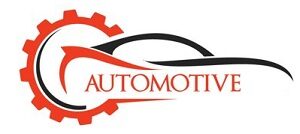In today’s highly competitive automotive industry, success requires more than just selling cars. To navigate the complexities of financing and insurance, dealership professionals need specialized knowledge and skills. This is where F&I (Finance and Insurance) schools play a vital role. F&I schools provide comprehensive training programs that equip individuals with the necessary expertise to excel in the world of automotive finance and insurance. In this article, we will explore the significance of F&I schools and how they empower professionals to thrive in their careers.
Understanding the Role of F&I Professionals
Finance and Insurance (F&I) professionals play a crucial role in the automotive industry. They bridge the gap between customers and lenders, helping individuals secure suitable financing options and insurance coverage for their vehicles. F&I professionals are responsible for ensuring compliance with regulations, offering valuable advice, and safeguarding the financial interests of both the dealership and the customer. With the right training and skills, they become instrumental in maximizing profitability for dealerships while delivering exceptional customer service.
The Importance of F&I School
Specialized Training: F&I schools provide specialized training programs designed to equip individuals with the knowledge and skills required to excel in automotive finance and insurance. These programs cover a wide range of topics, including lending practices, compliance, product knowledge, negotiation techniques, and customer relations. By immersing themselves in these comprehensive programs, students gain a deep understanding of the industry and acquire the expertise needed to navigate complex financial scenarios confidently.
Industry Regulations and Compliance: F&I schools place great emphasis on educating students about industry regulations and compliance requirements. In the ever-evolving landscape of finance and insurance, staying up-to-date with laws and regulations is crucial. F&I professionals must ensure that all transactions are conducted ethically, transparently, and in full compliance with legal standards. F&I schools provide the necessary training to understand these regulations and incorporate compliance practices into daily operations.
Practical Experience: F&I schools often offer hands-on training opportunities, enabling students to apply their knowledge in real-world scenarios. Through role-playing exercises, simulations, and case studies, students can practice their skills and refine their techniques. This practical experience enhances their confidence and prepares them for the challenges they will face in the field. Additionally, many F&I schools provide internships or job placement assistance, connecting graduates with reputable dealerships to kickstart their careers. Also you will be able to learn more about F&I software and how to use it.
Industry Networking: F&I schools serve as hubs for networking opportunities within the automotive industry. Students have the chance to connect with industry professionals, guest speakers, and fellow students who share their passion for automotive finance and insurance. These connections can lead to valuable mentorship opportunities, job referrals, and a broader understanding of the industry’s trends and best practices.
Conclusion
In the automotive industry, finance and insurance are critical components of a dealership’s success. F&I professionals serve as knowledgeable guides, ensuring customers receive suitable financing and insurance options while protecting the interests of the dealership. F&I schools play a vital role in preparing individuals for these demanding roles by providing specialized training, industry knowledge, and practical experience. By attending an F&I school, aspiring professionals can acquire the necessary skills to excel in automotive finance and insurance, ultimately contributing to the growth and success of their dealership and the satisfaction of their customers.

